February 4, 2025 | 21:36 GMT +7
February 4, 2025 | 21:36 GMT +7
Hotline: 0913.378.918
February 4, 2025 | 21:36 GMT +7
Hotline: 0913.378.918
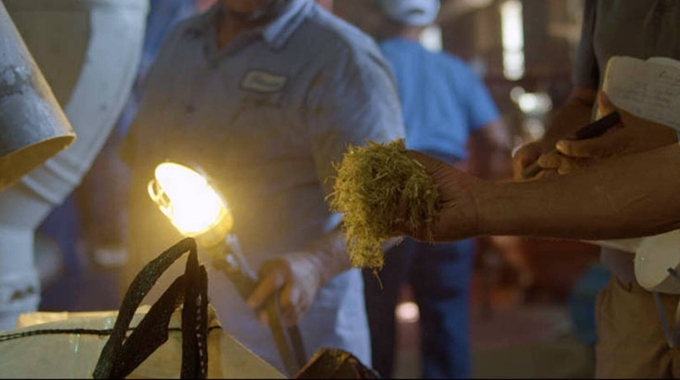
Study collaborators held a demonstration of how biochar is created. Credit: Juan Rodriguez
The dairy industry is one of the main sources of methane in California, making up 50% of the state's methane emissions. Reducing these emissions is a critical part of state and federal efforts to address climate change.
"This is a wonderful example of an untapped climate solution," said life and environmental sciences professor Rebecca Ryals. "Biochar reduces pollutant emissions from open burning of biomass and methane emissions from decaying biomass."
Though the dairy the researchers worked on used an anaerobic digesters to handle the waste from its livestock, it is not typical for dairies to have that technology. The plan is for most dairies to have digesters by 2030 to meet climate goals, but at the moment, only a small fraction actually have them.
Dairy manure is one of the largest sources of organic waste in the state. Farmers flush the waste from their barns and the liquids go into large, uncovered ponds, while the solids are piled up, explained fourth-year graduate student Brendan Harrison, who is studying agroecology under Ryals. Sometimes farmers cover the ponds to capture methane gases, which are fed into generators and burned to produce electricity.
"It's actually a pretty good way to reduce methane emissions, given the technologies that are currently available," Harrison said. "But what it leaves out are all the solids, which is a problem because basically they either spread it on adjacent fields just to get rid of it or they store it in big mounds. You can see them when you go past a dairy, covered with white plastic held down with tires. They can build up so much heat they spontaneously catch fire."
The study looked at composting the manure with biochar instead of stockpiling it. Biochar also improves the composted manure so that it makes a better fertilizer for farmers to use on other parts of their land, said mechanical engineering professor Gerardo Diaz.
"We were looking at how to reduce emissions but also how to provide some benefit to the community, especially underserved communities," Diaz said. "We looked at the possibility of developing a mobile unit that we could take to different sites to process some of the material there."
The study suggested small farmers would be able to use the improved fertilizer on their own farms to increase yield or sell it to others who need it.
The research team, led by Diaz, worked with Philip Verwey Dairy as well as industrial partners such as Golden State Carbon, LLC, and used local biomass.
"There's a pressing need to do something with that biomass because open-air burning is being banned starting in 2025," Diaz said. The process of creating biochar involves closed burning.
The researchers, including Diaz, Ryals and professors Teamrat Ghezzehei, Asmeret Asefaw Berhe, YangQuan Chen and Catherine Keske, looked at the project from different angles, including emissions, a life-cycle analysis, the economic viability of such work and how it affected the soil.
Biochar—which was used by Indigenous people in their own farming practices—tends to remain in the soil much longer than other types of compounds, but that lifespan depends on how the biochar is acted upon by the soil ecosystem, including the many different microbes that live there. That ecosystem determines how long any carbon remains in the soil, Ryals explained.
The ultimate result of this study is that biochar benefits dairy farmers and the climate, and Diaz said further studies will look at different types of biochar co-composted with dairy manure to motivate farmers to adopt this technology.
"Composting the solid manure isn't the common practice, but if we go from stockpiling to composting, now we've gone from a carbon source to a carbon sink," Ryals said. "Composting in and of itself is a very climate-beneficial practice. And you can basically double your impact by adding a little bit of biochar into that compost."
The work is published in the journal Environmental Science & Technology.
(Phys)

(VAN) Agricultural experts warned that the existing farm labor shortage, when combined with a possible 25 percent tariff on Mexican and Canadian imports threatened by the Trump administration, could drive up food prices nationwide.
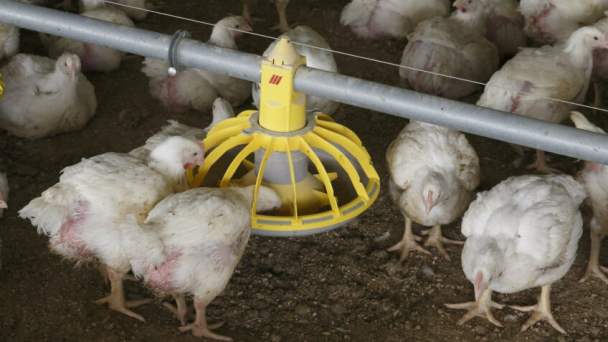
(VAN) The South African Poultry Association (SAPA) says that it remains optimistic about 2025 amid ongoing challenges uncertainties, with highly pathogenic avian influenza remaining the most pressing concern.

(VAN) Averting a tragic mismatch between global food supply and demand requires moonshot ideas.
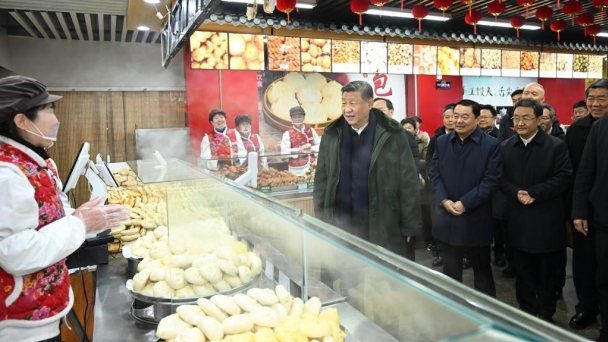
(VAN) Xi Jinping, general secretary of the Communist Party of China Central Committee, visited a food market in Shenyang, capital city of Northeast China's Liaoning province.
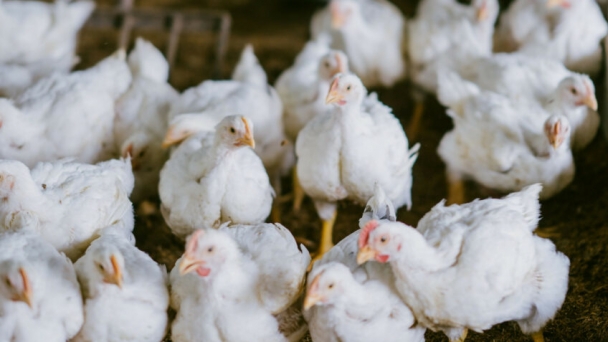
(VAN) The inability of poultry breeding companies to prevent chicks from being infected with a bacteria is forcing producers to turn to antibiotics at an early stage.

(VAN) The World Bank’s agricultural prices index gained momentum in the second half of 2024, propelled by record-breaking price increases in beverages.
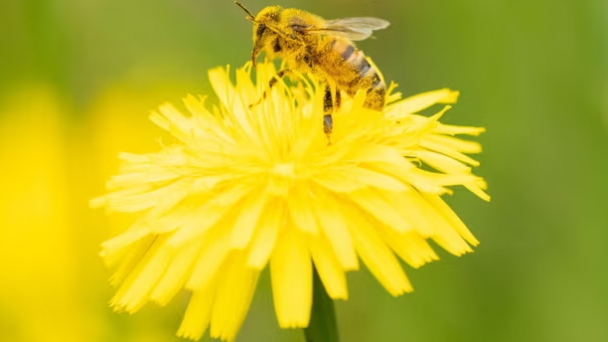
(VAN) Even average use of nitrogen fertilisers cut flower numbers fivefold and halved pollinating insects.